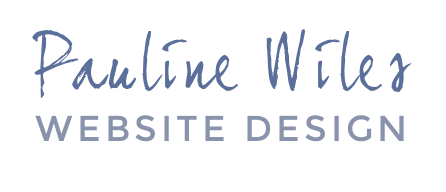How to Choose a Website Builder
• This article contains affiliate links •
For my clients who want a beautiful, customized, flexible website, my first choice platform is usually Squarespace. This gives me plentiful options for a truly personal design, is reasonably easy to update on an ongoing basis, and doesn’t cost the earth. See examples of sites I’ve built here.
However, not everyone is in a position to hire me to create a gorgeous website!
What to do instead? Well, your first stumbling block is choosing your platform.
If you'd like to try to build your own website without learning how to code, there are well over a dozen drag-and-drop website builder tools currently available.
Although I really love Carrd.co for DIY projects, I wanted to make sure I stay familiar with other options. So I set out recently to test the alternatives in the create-your-own website space.
I was so surprised at the different constraints I found, the difficulty of using some tools, and the show-stopping lack of choice with others, that I decided I should compile the things you should look out for, when deciding on a website builder tool.
Video option:
Watch this advice as a video, or simply read on.
How I tested the tools
Since the best way to evaluate a tool is to have a specific goal in mind, I challenged myself to recreate this simple website: savingsaffronsweeting.com.
(In case you’re curious, I made it in 2020, in order to separate my writing life and published books from my website design work. It took me around half a day to build and finalize in Carrd.)
Which tools I tried
One of the best things about Carrd is the low yearly cost ($19 for the Pro plan), so I deliberately chose to test tools with "budget" pricing, preferably with free options. I was surprised, however, how expensive most of the tools are, once you move away from their free plan.
Because I wanted to try drag-and-drop builders, you'll notice that I did not include a self-hosted WordPress option in this list:
Mailchimp
Jigsy
Webnode
Google sites
Wix
Carrd.co
Weebly
Webs
Strikingly
Jimdo
Ucraft
one.com
My advice for you, when evaluating a tool
It's essential you get clear on which of the following features are important to you, before you dive into trying out a tempting website builder, or the one that your friend suggests. I found in some cases I'd spent several hours learning the tool and grappling with the appearance of my test website, before coming across something that I considered a show stopper. So, to save you that frustration, here are the things I recommend you look out for.
How long & ugly is the (free) domain name?
If you're using the free plan, most of the tools will give you a website address that is less than appealing. But some are worse than others. In Wix, for example, I ended up creating paulinewiles1.wixsite.com/savingsaffronsweeting Yikes! Now, clearly this wasn't helped by the cumbersome name I chose for my site (the last part of that URL), but whatever name you pick, you're not going to want to advertise something as unwieldy as this.
How intrusive are the adverts?
On the free plan, expect to see either a plug for the tool you used, or banner advertising, or both. Do make sure you can live with these, before getting too excited about your new site. Remember, adverts dancing across the screen signal to your visitors that you don't really care about them.
What are the limits?
Especially on the free plan, there are bound to be limits for number of pages, storage space for your images, and the functionality (like forms, integrations, and other widgets) you can use. For the tool that you're considering, seek out the pricing page and compare what you get at each level.
Does the tool even work?!
An important part of my job is convincing people like you that you're not too techno-phobic to have a website! I was dismayed that 3 of the tools I tried had bugs and didn't work properly. Please be assured, if you simply can't get a feature to behave, and it isn't working as described in the help documentation, there's a good chance the tool is at fault, not you. In this instance, it's worth changing browsers and trying again, but if you're still frustrated, cut your losses and move on.
Layout choices: how constrained are you?
To be clear, enabling beginners to build websites with a drag-and-drop mechanism is a technology triumph. There's no reason you should understand the many pitfalls this approach can entail, but most of these tools try to keep you on the straight and narrow by limiting your choice of what you can place where. (And if you find a tool that doesn't, for goodness sake, please check your website on different browsers and devices!)
In an attempt to save you from design chaos, the tool stops you doing whatever you want. Sometimes that's fine: you'll make creative use of the layouts which are available, and tweak your design when necessary. At other times, the fact that you can't add a Call To Action (CTA) button right where you need it is, frankly, a show-stopper. Look out for this. Any tool that doesn't support your CTA buttons in the right place should go to the bottom of your list. Do not rely on text links for the important next step your visitor should take.
Can you change template/theme after starting?
In many cases, you can't change the overall look & layout after you begin, and that's fine. As above, there's a good reason for it. Just be aware that you might waste several hours if you can't adjust key things like header images or menu layouts, so pay close attention to the position of these items, before you spend too long designing.
Mobile responsiveness?
Almost all of these website builders claim responsive design, or in other words, that your website should automatically look good, and work well, on a small screen. Suffice to say, I've seen some DIY website efforts which look terrible, with text crashing images, columns in the wrong order, and so on. Please, please check your site carefully!
Can you specify your own colors?
If you're just starting out with no existing branding, palette, or images of your own, you might not care about choosing precise colors for your website. But if you already have a palette you want to use, be aware that the majority of the tools I tried did not (in my opinion) allow for adequate color specification. Some of them gave hardly any choice at all, while others did a better job, but still not with full control. For example, if "your" blue is #2344AE, you shouldn't be forced to use #4C5CAD.
Cost of SSL certificate?
Not to get too technical here, but unless your website has something called an SSL certificate, some browsers won't even let a visitor see your page. Never mind that you're not collecting information or processing payments, in today's world, showing up as https is non-negotiable. If you're on a free plan, I'm hopeful your tool will arrange this for you (along with your ugly url!) but as soon as you connect your own domain name, watch out for a hefty upcharge for SSL. I was appalled that Jigsy wants $49 per year for this, and my fear is that after you've sweated buckets to build your site, you might just sigh and pay up. (For comparison purposes, Carrd takes care of your SSL for free, without you lifting a finger.)
Domain name cost
I didn't notice any tools which force you to buy your website domain from them, but many of them offer it "as a convenience". What irritated me was the unnecessarily high price for this, especially in the case where your domain is a freebie for the first year. Like so many things in life, they claw it back from you later! As a guide, if you purchase your domain name from Google, a .com address is currently $12 per year. Much more than this, and your bargain builder tool is ripping you off.
Extra features?
If you need "extra" features, like an online store or a blog, it's vital you are clear on this before you choose a website builder tool. One thing I've noticed since I began my business is that website means very different things to different people, so it's dangerous to assume that a feature you need is automatically included. For example, my favorite platform, Carrd.co, is not suitable for blogging. (And here's why I think that's fine.)
Summary: Pause Before You Plunge
The more thinking you can do about your website needs before you start trying to choose (and learn) a tool, the better. I know it can be exciting to roll up your sleeves and start designing your website, but you risk spending (and wasting) many hours before you hit a potential brick wall.
For more help in planning your website, download my free Website Starter Kit here.
And next week, I'll share with you my top 3 website builder picks for low-tech folk on a low budget.
Related: WordPress vs Squarespace vs Carrd: Which is best in 2022?
•
Would you like a professional to build your website instead?
If, by now, you’re feeling daunted by building your own website, you can hire me to create a beautiful site for you, and deal with all the technical decisions you’ll encounter. After some careful planning, I’ll design, build, and launch your site in just 2 weeks. Schedule time for a free and friendly chat about your project here:












